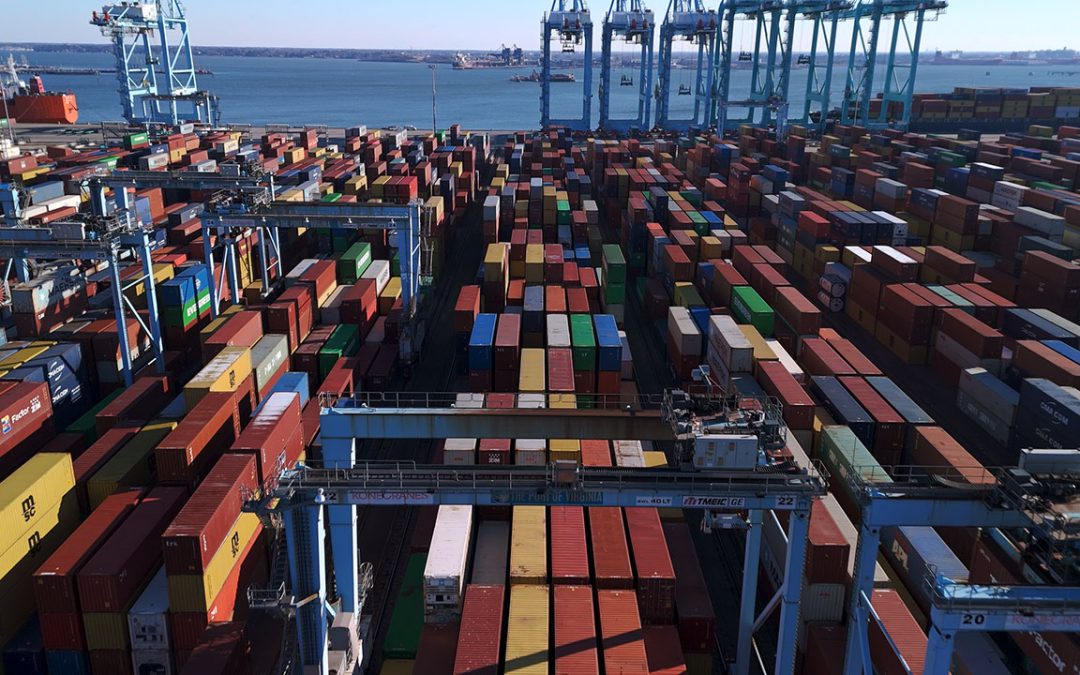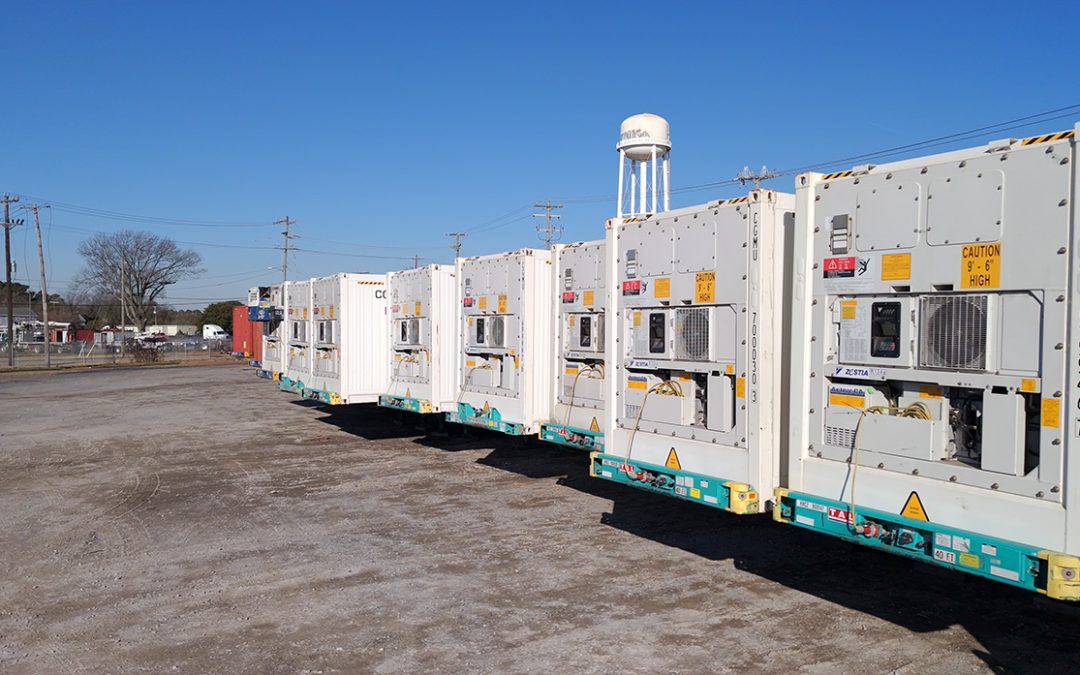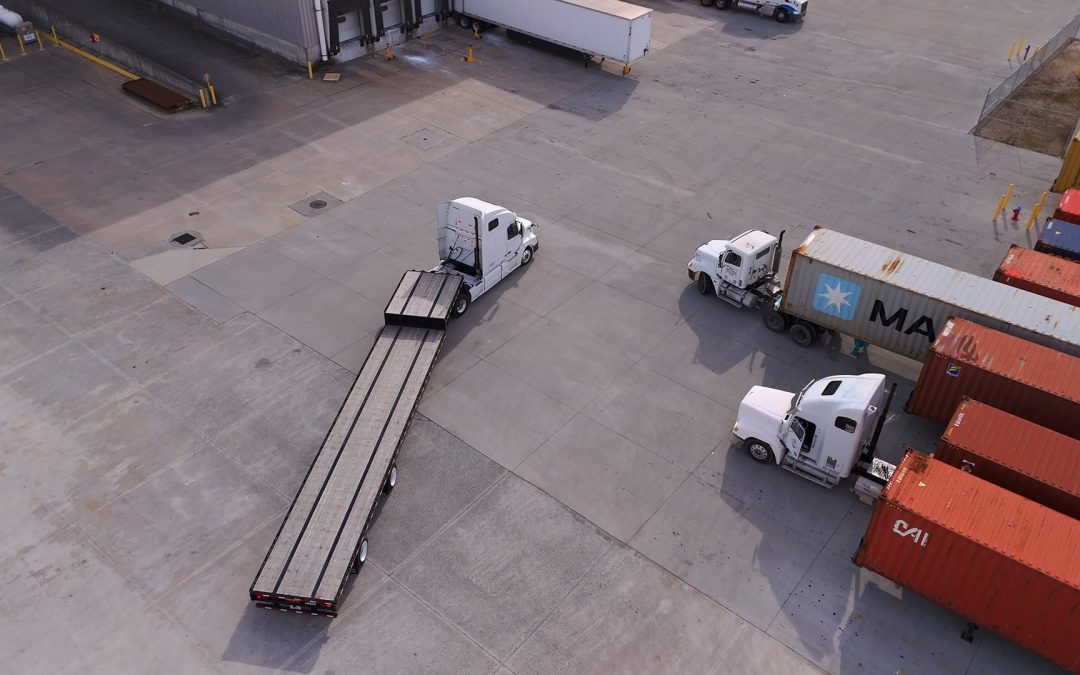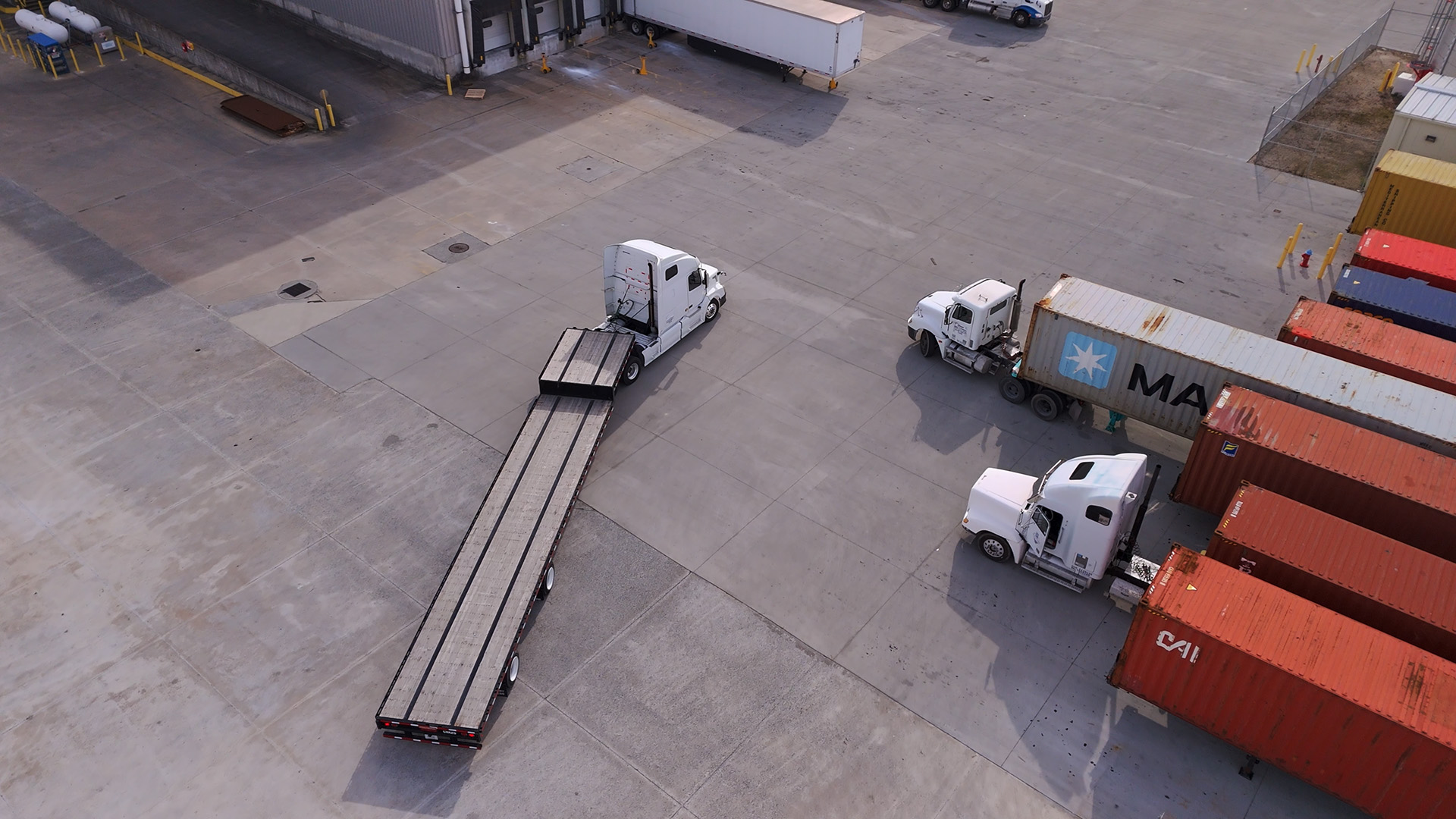
What the UP–NS Merger Could Mean for Intermodal Reliability at US Ports
Drayage Capacity Regulations
All Industry News
A Closer Look Through the Century Express Virginia Lens
The potential merger between Union Pacific and Norfolk Southern has put a spotlight on the future of intermodal transportation in the United States. While mergers of this scale often promise network efficiencies and expanded service footprints, they also bring serious questions about competition, service reliability, and long-term impacts on port operations. These questions are now front and center for many organizations connected to the ocean freight and drayage ecosystem.
One group that has stepped forward with detailed concerns is the National Association of Waterfront Employers, also known as NAWE. Representing marine terminals and stevedoring companies across the country, NAWE argues that consolidating two of the nation’s largest railroads could risk creating a less competitive environment and ultimately weaken intermodal service at ports that already feel the weight of growing cargo volumes.
At Century Express Virginia, we follow developments like this closely because upstream rail decisions eventually shape what happens on the ground at the ports we serve. Reliable intermodal performance is a cornerstone of an effective supply chain. When rail service becomes inconsistent, delayed, or insufficiently integrated with terminal operations, it affects every link in the chain from ocean carriers to truckers to shippers. Understanding the implications of a Class I merger is critical for any business that depends on efficient cargo movement.
In this analysis, we break down what NAWE is saying, why the concerns matter for ports of all sizes, and how the stakes could influence the future of intermodal service at gateways including the Port of Virginia. We also offer perspective on what shippers and logistics partners should watch closely as the Surface Transportation Board reviews the merger proposal.
Why NAWE is Sounding the Alarm About the UP–NS Merger
In its letter to the Surface Transportation Board, NAWE outlines a central concern. Reducing the number of Class I railroads through this merger could limit choices for shippers and reduce competitive pressure to maintain strong intermodal service at ports. The United States has already consolidated significantly compared to past decades when many more railroads operated nationwide. Less competition often leads to fewer incentives for improvement across service reliability, infrastructure investments, and network flexibility.
Ports depend heavily on rail partners to help maintain the flow of containers inland. When rail service falters, terminals experience mounting congestion, vessel schedules slip, and trucking operations become less predictable. NAWE argues that many marine terminals already face inconsistent intermodal support. They say railroads often operate on a best-efforts basis rather than providing the integrated, predictable service levels that terminals require.
Their letter highlights that precision scheduled railroading and an emphasis on high operating ratios have increased financial efficiency for railroads but may have reduced operational responsiveness. Marine terminals that handle rising trade volumes need rail partners who can adjust to conditions, both planned and unplanned.
Challenges Facing Marine Terminals When Rail Commitment Is Limited
A significant portion of NAWE’s concerns focuses on the imbalance in investment responsibilities. Marine terminals have invested heavily in building and expanding on dock rail infrastructure. These projects cost millions of dollars and require long term planning. Terminals build rail yards, staging tracks, crane infrastructure, and technology systems designed to streamline intermodal movement. Once these assets are in place, terminals rely on railroads to operate consistently so the investment delivers value.
NAWE states that the railroads sometimes take an approach similar to: if you build it, the railroad might use it when convenient. This approach puts an unfair burden on terminal operators who are expected to finance, maintain, and operate the infrastructure without receiving guaranteed levels of service.
This imbalance affects not only ports but also the logistics companies that work within port ecosystems. Century Express Virginia supports port fluidity every day through services such as port drayage, reefer drayage, rail drayage, transloading, yard facility storage, and specialized equipment solutions. When rail service is inconsistent, every other connection in the chain must work harder to keep cargo moving. NAWE’s position highlights how vital it is for railroads to participate as true partners in port operations.
What the Merger Could Mean for Medium and Smaller Ports
One of the most important points in NAWE’s statement is the need to grow intermodal capacity at medium sized ports. Much of the national freight volume runs through major gateways like Los Angeles, Long Beach, New York, and Savannah. However, medium sized ports across the country offer strong opportunities for growth and allow shippers to diversify routing decisions. The Port of Virginia is an example of how fluid operations and strong inland connectivity can compete with the largest coastal gateways.
According to NAWE, an UP–NS merger could concentrate more international intermodal cargo at already busy ports. If a combined railroad prioritizes established high volume corridors, smaller and medium sized ports may see fewer opportunities to attract inland cargo. Instead of increasing competition, the merger could funnel freight into fewer channels, weakening supply chain resiliency.
At Century Express Virginia, we understand the importance of balanced freight distribution. The Port of Virginia has grown into a national supply chain leader because of its operational fluidity, forward looking investments, and commitment to efficiency. Rail connectivity is a crucial part of that success. Any shifts in the competitive landscape that reduce flexibility for port partners or limit market reach can shape outcomes for shippers across the region.
The Need for Stronger Partnerships Between Ports and Railroads
NAWE emphasizes that intermodal growth will not be achieved by infrastructure alone. It requires commitment, collaboration, and a shared understanding of service expectations. Ports that invest in rail yards, cranes, staging tracks, and gate technology need assurance that their rail partners will utilize those assets to their fullest potential.
When railroads operate without firm commitments to service levels, terminals face uncertainty. That uncertainty can ripple outward, affecting steamship schedules, trucking operations, and inland distribution centers. Medium sized ports in particular continue to struggle to secure meaningful commitments from the railroads. Yet these ports offer tremendous untapped potential for shippers who want access to less congested gateways with strong inland reach.
For true intermodal growth, ports need rail partners who share both responsibility and vision. A merger that shifts market power without reinforcing partnership structures could slow progress where it matters most.
What This Means for the Broader Supply Chain
A merger between Union Pacific and Norfolk Southern is not just a rail industry story. It affects ocean carriers, marine terminals, drayage companies, trucking partners, warehouses, and shippers. Every stakeholder relies on predictable inland movement. Rail is a vital connector between port complexes and inland markets. Any decrease in reliability, capacity, or competitive tension could create bottlenecks throughout the supply chain.
Shippers already face volatility in freight costs, inventory planning, and global market trends. A disruption or degradation in intermodal reliability could intensify those challenges. NAWE’s concerns represent an effort to ensure that the Surface Transportation Board evaluates the long-term implications of merging two major railroads with the necessary scrutiny.
A Century Express Virginia Perspective
From our position in the drayage and freight handling ecosystem, we understand how critical rail performance is to the fluidity of port operations. The Port of Virginia relies on consistent inland connections and maintaining that performance will depend on competitive rail service, modernization, and cross industry collaboration.
Shippers depend on supply chain partners who can deliver predictable results. Rail service reliability is essential for maintaining those expectations. As the industry watches the UP–NS merger review unfold, shippers should stay informed about potential impacts on inland routing options, intermodal schedules, and capacity planning.
Century Express Virginia remains committed to helping customers navigate changes across the logistics landscape. Whether through drayage, transloading, equipment services, or storage solutions, our focus is on providing stability, responsiveness, and expertise in a supply chain that continues to evolve.







